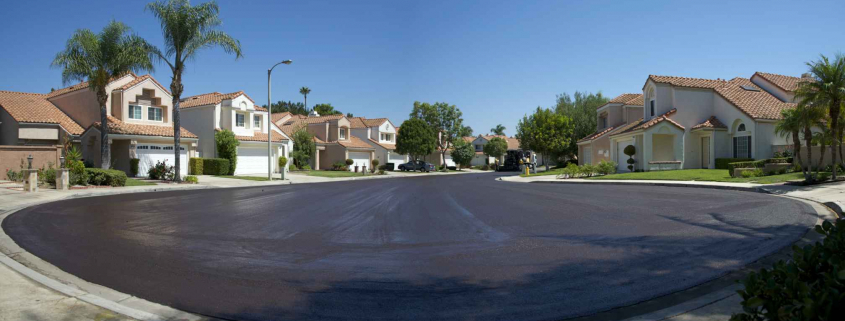Is Sealcoating an Asphalt Parking Lot a Sound Financial Decision?
Whether you manage a municipal property, an apartment complex, or a retail operation, you are expected to manage your budget wisely. A part of effective budget management is to avoid unnecessary repairs. You also want to avoid having to replace a capital asset before its expected life has been reached. Asphalt sealcoating can help you reduce the costs for repairing your parking lot, and it can help you ensure that your pavement achieves its full life.
Is Sealcoating an Asphalt Parking Lot a Sound Financial Decision?
What Is Sealcoating?
Sealcoats are products that have been engineered to bond with asphalt pavements to create a protective barrier. Because they are somewhat finicky, sealcoats should only be applied by a reputable asphalt company to ensure the best results.
Why Asphalt Sealcoating Is Especially Beneficial for Parking Lots
Parking lots take a lot of abuse from traffic and the weather. The sun can make asphalt paving brittle and dry, and vehicles can leak fluids that soften asphalt pavements. Parking lot sealcoating prevents damage from the sun, helps prevent automotive fluids from reaching the asphalt paving, rejuvenates the color of faded asphalt, enhances pavement traction, and gives the area a smoother appearance.
How Often Should Asphalt Sealcoating Be Applied?
You should ask the contractor handling your parking lot maintenance to recommend the right schedule for your pavement. Most asphalt maintenance contractors in Orange County state that an average parking lot should receive a fresh application of sealcoat approximately every two years. However, you could need annual touch-ups, or you may be able to go longer between applications.
How Long Must an Area Remain Closed After Parking Lot Sealcoating?
Sealants rely on evaporation to cure, so anything that slows or accelerates the evaporation process can affect the closing time. For example, on a warm, sunny day with relatively low humidity and a slight breeze, the lot can be opened faster than on a cool, cloudy, windless, humid day. Normally, you can begin allowing vehicles into your lot within 24 hours. However, if this is going to seriously disrupt your operations, you should ask your parking lot sealcoating contractor about the feasibility of sealing your lot in sections so that at least part of your lot will be open at all times.
How Does an Asphalt Company Sealcoat a Parking Lot?
Every asphalt maintenance contractor works a little differently, but there are some steps that virtually all of them follow.
• Establish a perimeter to prevent traffic from entering the work zone. This may require setting up barricades, taping off the area, or setting out cones.
• Ensure that cracks and other damages have been repaired.
• Clean the pavement thoroughly.
• Apply the liquid sealant with a sprayer, a squeegee, or a combination of the two.
• After the first thin coat of sealant has dried, apply a second thin coat.
• If the job includes striping and marking the parking lot, this can usually be done as soon as the second coat has dried adequately.
Peterson Grading & Paving would be happy to answer any questions you might have about your parking lot maintenance. Our services include sealcoating, parking lot striping, asphalt repairs, ADA compliance, asphalt crack repair, concrete ramps, asphalt overlays, concrete sidewalks, line removal, asphalt paving, bollard installation, concrete repairs, asphalt milling, marking removal, and concrete sidewalks. We serve municipal and commercial clients throughout California, and we handle projects of all sizes. We have built an exemplary reputation that is based on our exceptional craftsmanship and amazing customer service. For a free quote, submit the online request form, call 949-402-6979, or email Ryan@GradePave.com.





Leave a Reply
Want to join the discussion?Feel free to contribute!